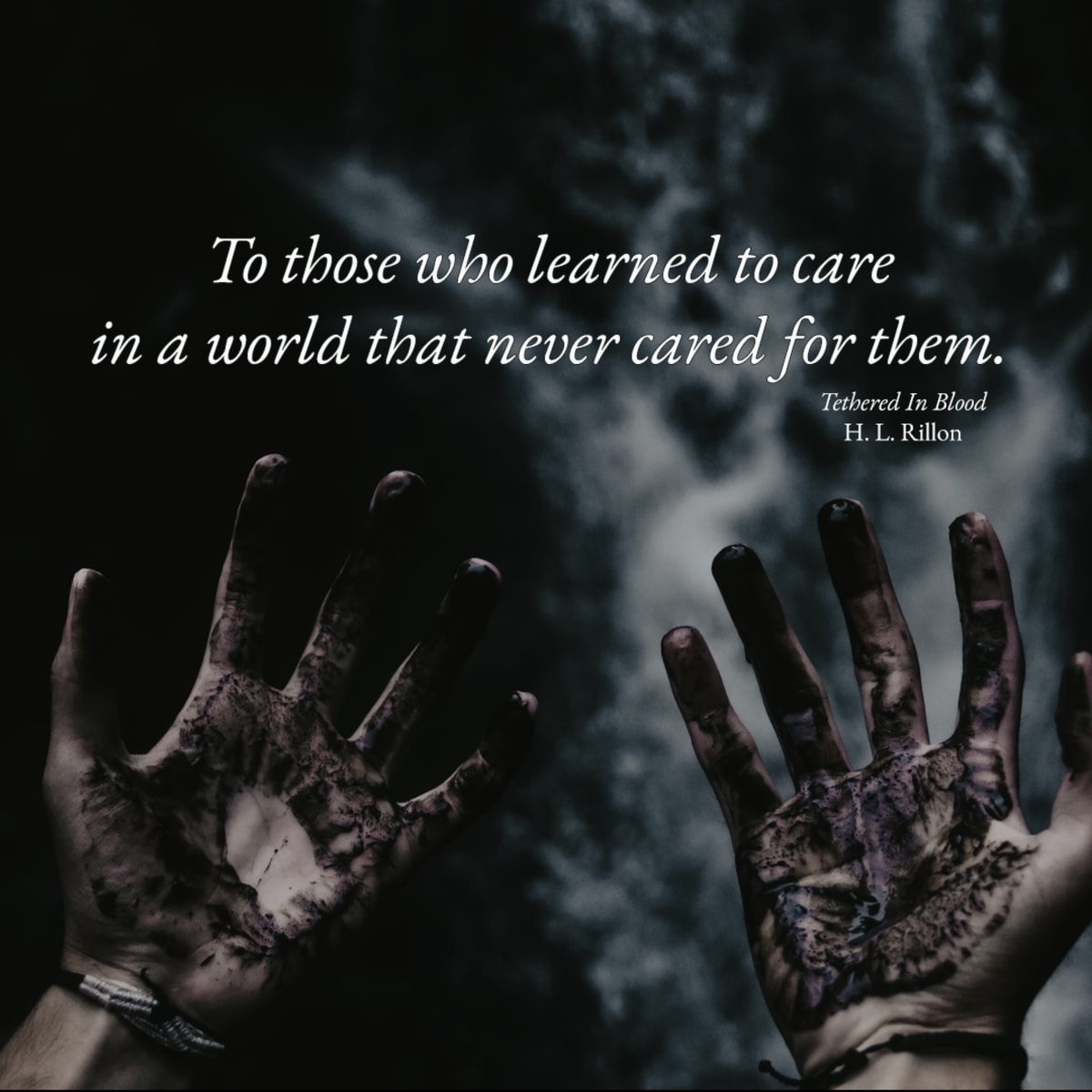Hi readers,
Since releasing Tethered In Blood, I’ve been asked time and again: Where did the idea come from?
And the truth is... it didn’t come from a single moment, song, or movie (though Mr. Darcy, Sleep Token, and Daughter helped). It came from years of silence, pain, and survival. From the pieces of myself I didn’t know I had the strength to face until I gave them a voice within words in a document.
Tethered In Blood is more than the first book in The Oathsworn Saga. It’s the beginning of a story written in shadows with painful truth. Nearly every element of this world—the creatures, the curses, the aching bonds between characters—is a reflection of my own experience with trauma and the long, grueling path toward healing.
At their core, my books are all metaphors, mirrors, and reckonings.
Eden's journey is deeply personal.
She isn’t trying to heal—she’s running. She believes if she can bury the past deep enough or make herself useful enough, she can outpace it. The monsters she faces are more than the ones hiding in the mist or under the soil; deep down, they wear familiar faces. They echo the voices of family, betrayal, and survival twisted into something horrific. Her search for answers is what haunts so many of us who’ve endured what should have broken us: Why me? What do I need to do so it won't hurt others anymore?
And then there’s Oberon.
He presents as a weapon, a knight forged for a kingdom that only ever tolerated him. The “kingdom’s bastard fae,” as he calls himself. He’s spent his life hiding the truth of his lineage, his magic, and his pain. He wears power like armor, but underneath, there’s a man who has never been given something—or someone—to protect beyond the kingdom. A man who doesn’t believe he’s worthy of love, let alone someone who stares back at him without fear. Eden’s presence unsettles him, not because she’s reckless, but because she sees him—and that terrifies him more than how his magic stirs around her.
Each character in this world carries their own wound.
Some are fresh, some are scarred over, but all of them bleed in different ways.
The phrase "The herbalist must bleed" is more than a ritualistic threat. It’s a truth that echoes throughout the book. It represents what trauma demands: blood, memory, and vulnerability. Eden cannot escape it. None of them can. Because Aurelith’s monsters aren’t just flesh and magic, they are metaphors for generational wounds, inherited silence, and the ghosts we carry. They remind us that no matter how far you run, no matter how strong you pretend to be, your past will rise. It doesn’t knock at the door politely; it floods the room without notice.
Through it all, there’s a quiet undercurrent of hope, of strength found not in isolation, but in connection. Of choosing to stand—especially when everything inside you says to run.
Tethered In Blood is the first step in that journey.
A story of survival, yes. But also of what it means to belong, to be seen, and to be loved when you no longer feel human enough to deserve it.
Thank you for stepping into this world with me. I promise it only gets deeper from here.
—H. L. Rillon
